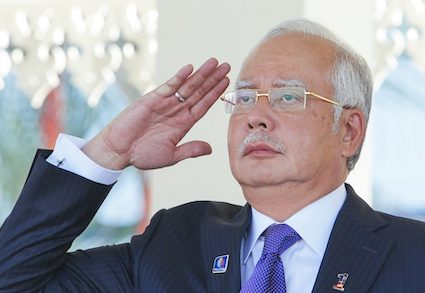Commentary: Will Najib Razak’s dissenting judgment ploy sway public opinion?

Imprisoned former Malaysia prime minister Najib Razak is hoping to use a lone dissenting judgment to fight for his release. Lawyers and political analysts are sceptical this will work, says CNA’s Leslie Lopez.
From the confines of his cell at the Kajang Prison, about 33km from Malaysia’s capital Kuala Lumpur, former prime minister Najib Razak is plotting a new strategy for his release, leveraging his most recent setback in the Malaysian courts.
Malaysia’s top court on Mar 31 threw out an application over his conviction, jail sentence and a stiff financial fine, over corruption charges in the 1Malaysia Development Berhad (1MDB) debacle.
But unlike previous decisions that were unanimous over his guilt for his role in the multi-billion-dollar scandal at state fund 1MDB, the verdict meted out by a five-judge panel of the Federal Court in last week’s hearing came with one dissenting judgment. This presents the former prime minister and his legal team with a new gambit to pursue.
“This does provide an avenue for appeal, not necessarily in the courts, but other possibilities,” a senior member of Najib’s legal team told CNA, noting that one of the options for Najib is to apply for a royal pardon. Najib, in January, also filed a petition before the United Nations Human Rights Council Working Group on Arbitrary Detention over his “unjust” conviction.
HOPE FROM A SOLE DISSENTING JUDGMENT?
On Tuesday (Apr 4), Najib’s lead counsel Shafee Abdullah told reporters that the sole dissenting judgment by Justice Abdul Rahman Sebli, who ruled that Najib did not have an effective legal representation during his final appeal would be included as grounds to support his client’s application for a royal pardon. The request, which will be the former premier’s second pardon application, will be submitted next week, Shafee said.
Shafee also said that that apart from the judgment by Justice Abdul Rahman, who led the five-member panel, the majority decision by the four Justices Vernon Ong, Rhodzariah Bujang, Nordin Hassan and Abu Bakar Jais, would also be submitted in the pardon application.
The 69-year-old Najib, Malaysia’s first former prime minister to be imprisoned, has long maintained that he has been a victim of selective prosecution by the state and a hostile judiciary.
When he was first charged in August 2018 with a slew of money laundering and graft charges over the 1MDB affair and its one-time subsidiary concern, SRC International, Najib griped that he was being hounded politically by the previous government headed by Dr Mahathir Mohamad and subsequently by former prime minister Muhyiddin Yassin.
In July 2020, Najib was sentenced to 12 years in jail and a fine of RM210 million (US$48 million) after being found guilty on seven graft charges in relation to SRC International. High Court Judge Mohamad Nazlan Mohamad Ghazali, who found Najib guilty, later became the target of a campaign by the former premier’s legal team and political supporters for alleged misconduct, in a bid to disqualify the judge and secure a mistrial.
That gambit failed, and Najib was later found guilty by a three-member Court of Appeal panel that unanimously upheld the High Court verdict in December 2021 before five justices from the country Federal Court, the apex chamber of the country’s judicial system, endorsed the judgments of the two lower courts and ordered Najib to begin serving his jail sentence in August last year.
That decision came after several controversial days of hearings, which saw the court deny requests for an adjournment after Najib replaced his legal team in the final stretch of the appeal process.
Najib sought a review on the Federal Court decision and that resulted in the 4-1 decision on Mar 31, very much bringing an end for further appeals.

